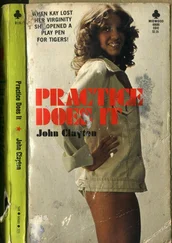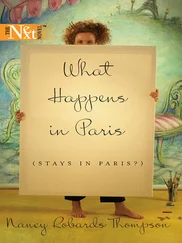Typically, he never called Margarita for the simple reason that she never answered, but his despair at the prospect of decorating the tree alone was so overwhelming that he decided to give it a try. To his great relief, Margarita not only answered the phone, but also noted down the address and said that she would be on her way. Naturally, one never knew with her, but he had no choice except to wait.
Valentin walked through the icy vastness of the apartment. He lingered in the library, furnished like a real English library, countryside mansion-style complete with wood paneling, a fireplace, and shelves with books from floor to ceiling. The fireplace, unused, was bright and clean. No surprise. Fanny appeared somehow incompatible with fire. He climbed a small folding ladder and tried to read the titles on the shelves in front of him. It was a series of medical books in Latin. He wondered how these could have ended up in Fanny’s house, and for the first time felt curious about her family. That is, if it was not just money, just for show, as it had seemed to him at first. But maybe there was more to Fanny than one imagined. He walked by the shelves, his hands in his coat pockets. It was too cold to pick up and browse through a book. He admired the leather-bound volumes of Dickens’s and Oscar Wilde’s complete works. But then he got angry — what was the point of having such treasures in this awful cold? It almost seemed like the cold was artificially maintained by who knows what kind of demonic contraption. He started looking for possible indications of its existence and stumbled upon the kitchen, whose size and whiteness simply dazzled him. On top of everything, the windowpanes were covered with frost. The heavy rectangular table in the middle of the kitchen was the only dark, alien spot. You could stuff chickens and legs of lamb on it, you could cut cabbage, knead dough, and who knows what else. But why did Fanny need this kitchen, where everything sparkled in its pristine condition? Another mystery. And her bedroom, what could it reveal? Were there any traces of life there?
Just then he heard the thin crystalline tone of the doorbell. Someone was coming. Valentin headed for the door, and before opening it to see who it was, he was ready to swear it could not be Margarita. But it was Margarita, without her giant bag.
The father of the twins, Margarita and Valentin, was a pathologist; back when Maria still talked, she often asked him about his work. Then, somehow imperceptibly, she stopped. The same thing had happened to their relationship — it had disintegrated into thin air before he noticed any of it. He woke up one day realizing that he had become useless to his own wife and children. Anything he set out to do got done before he could finish it. Anything he tried to say — a suggestion, a conclusion of any sort — was already a matter of common knowledge. The children shyly slipped out of his arms whenever he wanted to take them out somewhere. Maria had taken them there already. No one asked him any questions, and when he asked a question, the answer stood obvious before him, or no one seemed to understand what he was saying. Of course, it didn’t happen overnight, but the process had been treacherous precisely in its slowness. He hadn’t been able to put his finger on anything in particular that he could have tried to change or complain about. Simply whatever he thought of doing was somehow already done.
And whatever he undertook in the house, repainting the walls for instance, an occasion he distinctly remembered, inevitably failed because it had been his initiative.
It was then that he started drinking. No one understood what was happening. Like a desperate man staring down the edge of a precipice, he made scenes. Maria dealt with these in her way, too; could you beat your head against a wall that was continuously retreating? He could no longer recognize the world he lived in. When he screamed through tears that his wife didn’t love him, she seemed unable to understand what he meant. When he accused her of wanting to see the end of him, she merely smiled. He asked her repeatedly what she wanted from him, and while asking, he began to believe in his own imaginary answer. He knew that he was instinctively holding onto it as his only chance of survival. But no other answer was offered. He inhabited a world of deaf people, or a world of strangers, isolated like a benign tumor rejected by a body’s immune system. He spent an indefinite amount of time in a state of silent torpor, then tried to liven up by going out, with people who were truly trying to help him. But the house with his children and his wife in it was still there — all around him, but also inside him, and he could not reconcile these two contradictory feelings.
When his state evolved into a conviction that someone could read his mind and did everything he himself meant to do, his brother took him to see a psychiatrist. As soon as he said that his wife had taken his place and now lived his life, the psychiatrist decided to have him admitted for treatment. The medication calmed him down and dissipated his panicky urge to search for a way out. After long months of conversation and interaction with the hospital staff and the other patients, who were disappearing one after the other, Maria’s husband learned two things: first, that it was better to be separated from his wife and children and, second, that for some inexplicable reason, inside him, a problem had engendered itself, and from now on he had to live with it.
29. What Will We Do with Each Other
The gentleman Mr. V. had grown to be inseparable from his name. Everyone called him Mr. V.; everyone was also oblivious to the fact that he sometimes wrote poetry. And he took his pursuit of poetry so seriously that he never talked to anyone about it. His wife was duly informed, of course, but she was the last person on earth to think of spreading this kind of information. She didn’t have anything against it. But until he became as good at writing poetry as he was at making money, there was no need to reveal his secret. It was simply a question of self-respect. All the same, there was a tiny problem — money was something you could count and count on, but verse? Who could tell if or when a poem was good? Madame V. was about fifty-seven or fifty-eight years old; she had the heavy build of a German and a healthy look. She inspired unspoken jealousy among her female acquaintances for a variety of reasons: she was the wife of Mr. V.; she was an artist and she managed to sell her paintings; she seemed to know everything and was invited to every party. On top of that, she was obviously under no obligation to accept every invitation. When she didn’t go, her husband did, and it had the same effect. The two of them were having a good time and seemed to be a perfect match for each other. He was sophisticated, yet timid, and she was self-assured and sociable, bursting with physical vitality.
It was Christmas Eve and Mr. V. was in torment. Fanny was expected to come, but he knew she wouldn’t, and that was a problem. He could almost hear his soul crumpling like parchment with worry, but decided to make one last attempt. The car stopped in front of Fanny’s place and he ran up the stairs to the third floor, hoping that his legs would prove faster than his dread. The bells echoed on the other side and the door opened. A handsome dark-haired boy appeared. How strange, he looked familiar. Had he seen him somewhere? Good evening, I’d like to speak to Fanny. The boy walked away and came back to show him in. And there — wonder of wonders! In the middle of the living room shone a magnificent Christmas tree. They kept walking toward the library. And there — Mr. V. could hardly believe his eyes — the open fire was lit, and sitting in front of it was Fanny, disheveled, engaged in conversation with another boy, who looked very much like the first one. No, it wasn’t a boy, it was a girl, sitting with her back to the door. Mr. V. froze, but Fanny jumped to her feet, took his hand and pulled him down to the floor by the fire, where the first boy was already comfortably seated. No, not the first boy, the boy. After a few awkward words, Fanny introduced him to the twins and thrust a cup with a warm drink into his hand. Thank goodness, it wasn’t tea, or was only half tea — praise be to God for grog. Mr. V. pulled his legs close to his body and stared at the twins. He had a perplexing sensation of déjà-vu. The boy’s eyes were alert and solemn, and the girl, the girl had something unfathomable about her that drew him like a magnet. But the strangest of all three was Fanny. There was no trace of her Snow Queen air, her cheeks had a rosy after-skiing kind of glow, she was babbling happily. The fire was crackling to the rhythm of unheard music. Mr. V. was overcome by a feeling of bliss. Here was oblivion. Outside, the sky was dark already and time galloped on. But here — he was sitting on his behind as if it were the first time he had ever done so, he was sipping his grog, comfortable on the woolen carpet, marveling at the droplets evaporating from the tops of his shoes. At some point other people came in, a noisy crowd that gathered and then dispersed through the house. One could feel their presence. The house was just awakening with life. After his third drink someone propped a soft pillow under his head and Mr. V. dozed off, content by the fire.
Читать дальше











